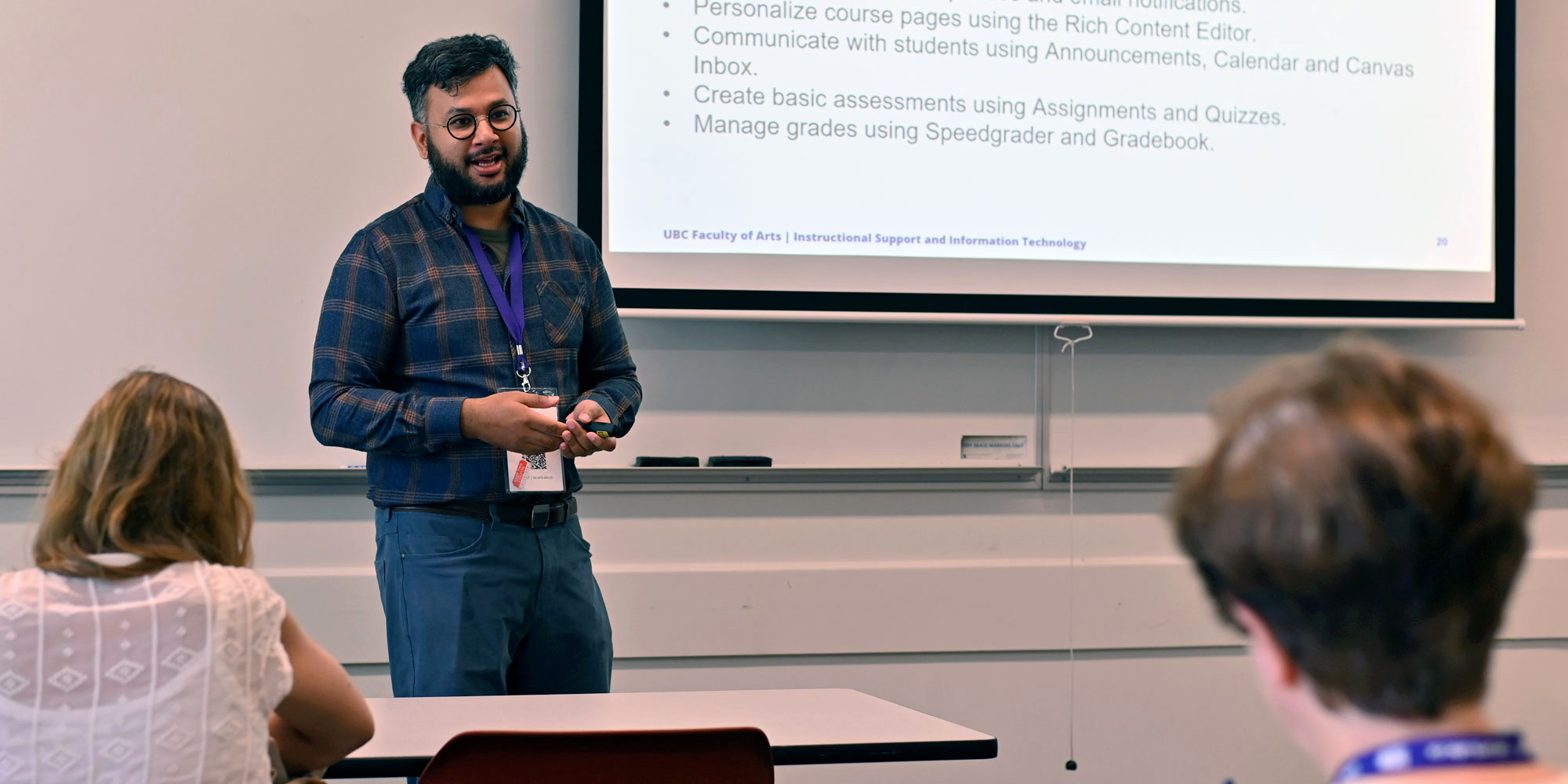

The work students do in my courses can also be very valuable to others who want to learn about philosophical topics. Thus I have asked students to create blog posts and post other assignments on our public course websites to share their thoughts and their knowledge with others.
–Christina Hendricks, Sr. Instructor of Philosophy & Chair of Arts One Program
Back Story
I use WordPress for all of my course sites. One of my course sites is for PHIL 102, Introduction to Philosophy. That is a 3-credit course focused on introducing students to topics in philosophy such as ethics and the meaning of life. It typically has over 100 students. Another course site is for my seminar group in the Arts One program. Arts One is an interdisciplinary, team-taught course for first-year students. Students get 6 credits each in first-year English, History and Philosophy. There are 100 students and 5 professors in each of two groups in the course, and my course site is for the 20 students with whom I meet for seminar discussions twice a week over the course of an academic year.
How did you use WordPress/blogs in your course and what made you decide to do this?
Because of the large number of students in PHIL 102, I have done something a bit complex with the WordPress course site (http://blogs.ubc.ca/phil102). I have developed six satellite sites, one for each of the groups students break into for discussion meetings on Fridays. Each site is accessible by up to 25 students in a discussion group (see, e.g., http://blogs.ubc.ca/phil102l03). That is where they do their posts for the course. That way, they know most or all of the other students using the site, and it is much easier for them to find their own posts and those of the people in their small groups within the Friday discussion meetings. However, all of those posts are also syndicated to the main course site, and we use categories on WordPress to allow people to easily find all posts by students on, for example, Epicurus or John Stuart Mill or Jean-Paul Sartre.
Students in my seminar group in Arts One have their own blogs, and their posts are syndicated to our course site at http://a1hendricks.arts.ubc.ca. They are also syndicated, along with all other blogs from the Arts One program, to our Arts One Open site: http://artsone-open.arts.ubc.ca.
I decided to use WordPress for my course sites as a result of considering the value of sharing the work I and students do with a wider audience than just the class itself. I have learned so much from the work shared by other faculty members on the open web—finding useful strategies for teaching certain topics or works, learning about how others interpret complex arguments, and seeing ideas for innovative assignments I had not considered before—that I felt I wanted to give back in case anyone found what I was doing useful. In addition, the work students do in my courses can also be very valuable to others who want to learn about philosophical topics. Thus I have asked students to create blog posts and post other assignments on our public course websites to share their thoughts and their knowledge with others. I always provide them with the option, though, of either doing so with a pseudonym, password-protecting the content so it’s available only to other members of the class, or making their posts private only to me (fortunately such flexibility is easy on WordPress). Over the past few years I have developed a strong conviction that, so long as students and faculty are willing, there is great value in sharing what we do more widely, beyond our classrooms and even beyond the university. I have an equally strong conviction that such sharing must be completely voluntary for faculty and students, however.
What has been the result?
In Arts One, having all students’ blog posts from the whole program collected into one site allows students to see posts on the text they’re studying from the rest of the students in the course, not just those in their 20-person seminar group. This can connect students across seminar groups in a way they might not otherwise interact. In addition, instructors can see what students in other seminar groups are talking about, learning from them as well as from their own students. At the same time, students in each seminar group can easily find the blog posts from students in their own seminars, and bring up things from those blog posts in class meetings.
Similar, in PHIL 102, students can see what their colleagues in their Friday discussion classes are writing about, but they can also read posts from many other students in the course, organized by tags. One thing I have done for the past two iterations of this course is to ask students to find and write about their definition of philosophy and where they see philosophical activity out in the world beyond the classroom. Part of the point of this activity is to provide information for anyone who is interested to see the various ways we can define philosophy, and the various ways people engage in philosophy beyond university courses.
What are some of the challenges you’ve faced and is there anything about your approach you would improve or change?
One challenge I have faced is incorporating more interactivity in the work students post on the course websites. In small classes I have sometimes asked them to comment on each others’ work, and I can keep track of whether or not they have done so; but in large classes it’s too difficult to keep track of this. Thus, so far, in large classes there is little to no interaction on the students’ public posts on our course websites.
One thing I’d like to do but haven’t yet done is ask students to license the work they post publicly with a Creative Commons license (See, e.g., http://copyright.ubc.ca/guidelines-and-resources/support-guides/creative-commons/). This too would be entirely voluntary, just as is posting their work publicly, but just as I license my teaching materials with Creative Commons licenses because I would like others to be able to reuse them if they wish, I think it would be good to ask students to consider doing so with their work as well.
The only other challenges I have faced have been technical, but IT staff at Arts ISIT and CTLT have been wonderful with helping me to overcome them. The weekly drop-ins for WordPress, for example, are invaluable opportunities to get one-on-one help with course sites (See http://events.ctlt.ubc.ca).
Do you have any advice for instructors hoping to implement this in their course?
As already mentioned, I think it’s critical that anything you ask students to do be voluntary, and that you provide them with the option of posting with a pseudonym or just to you or a T.A. Students own their own work and should be left free to choose whether to make it available to others beyond those who are marking it, and if so, whether they want to be identified publicly. What is posted on the internet can often be found later, even if it is deleted, and students may choose to not have their university work associated with them in the future.
In addition, if you’re interested in using WordPress for a course, there is a great deal of support available, so don’t be afraid to ask!


